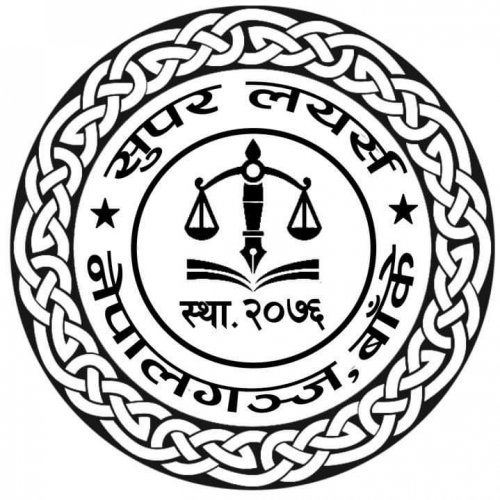Best ADR Mediation & Arbitration Lawyers in Nepalgunj
Share your needs with us, get contacted by law firms.
Free. Takes 2 min.
List of the best lawyers in Nepalgunj, Nepal
About ADR Mediation & Arbitration Law in Nepalgunj, Nepal:
ADR (Alternative Dispute Resolution) Mediation & Arbitration is a legal process used to resolve disputes outside of traditional court proceedings. In Nepalgunj, Nepal, ADR Mediation & Arbitration is governed by the Arbitration Act, 2055 and Mediation as well as the Conciliation Rules, 2069. These laws provide guidelines for resolving conflicts through negotiation, mediation, and arbitration methods.
Why You May Need a Lawyer:
There are several situations where seeking legal help from a lawyer in ADR Mediation & Arbitration can be beneficial. Some common scenarios include:
- When you are involved in a dispute and want assistance in navigating the ADR process.
- When you need guidance on your rights and obligations during mediation or arbitration proceedings.
- In case you want to draft or review an agreement or contract related to ADR.
- If you require representation during ADR proceedings.
- When you want to enforce or challenge an ADR decision.
Local Laws Overview:
In Nepalgunj, Nepal, the key aspects of local laws relevant to ADR Mediation & Arbitration are as follows:
- Nepal recognizes the enforceability of both domestic and international arbitration agreements.
- Mediation is considered a voluntary and confidential process, and any settlement reached during mediation can be enforced as an arbitration award.
- The Arbitration Act provides mechanisms for the appointment of arbitrators, conduct of arbitration, and enforcement of arbitration awards.
- The Mediation and Conciliation Rules regulate the mediation process, including the appointment of mediators, rights and duties of parties, and enforcement of mediation settlements.
Frequently Asked Questions:
1. What is the main difference between mediation and arbitration?
Mediation is a voluntary process where a neutral third party helps disputing parties reach a mutually agreeable settlement. On the other hand, arbitration is a more formal process where an arbitrator or panel of arbitrators makes a binding decision on the dispute.
2. Are the decisions made through mediation legally binding?
No, the decisions made through mediation are not legally binding. However, if a settlement agreement is reached during mediation, it can be enforced as an arbitration award.
3. Can I choose my own mediator or arbitrator?
In most cases, the parties involved in ADR can choose their own mediator or arbitrator. However, if they cannot agree, the applicable laws or rules may provide a mechanism for the appointment of a neutral third party.
4. How long does the ADR process usually take?
The length of the ADR process can vary depending on the complexity of the dispute and the willingness of parties to cooperate. Mediation can often be completed within a few sessions, while arbitration may take several months or longer to reach a final decision.
5. Can I appeal the decision made through arbitration?
In general, the decision made through arbitration is final and binding. However, there may be limited grounds for challenging or appealing an arbitration award, such as procedural irregularities or lack of jurisdiction.
Additional Resources:
If you require further information or assistance regarding ADR Mediation & Arbitration in Nepalgunj, Nepal, you may find the following resources helpful:
- Nepal Bar Association - A professional association of lawyers that can provide guidance and referrals.
- Alternative Dispute Resolution Center - A governmental body that promotes and facilitates ADR processes.
Next Steps:
If you need legal assistance in ADR Mediation & Arbitration, consider the following steps:
- Identify your specific needs and objectives in resolving the dispute.
- Research and select a qualified lawyer with expertise in ADR Mediation & Arbitration.
- Arrange a consultation with the lawyer to discuss your case and explore available options.
- Work closely with your lawyer throughout the ADR process, providing all necessary information and documents.
- Follow the advice and guidance provided by your lawyer to achieve the best possible outcome.
Lawzana helps you find the best lawyers and law firms in Nepalgunj through a curated and pre-screened list of qualified legal professionals. Our platform offers rankings and detailed profiles of attorneys and law firms, allowing you to compare based on practice areas, including ADR Mediation & Arbitration , experience, and client feedback.
Each profile includes a description of the firm's areas of practice, client reviews, team members and partners, year of establishment, spoken languages, office locations, contact information, social media presence, and any published articles or resources. Most firms on our platform speak English and are experienced in both local and international legal matters.
Get a quote from top-rated law firms in Nepalgunj, Nepal — quickly, securely, and without unnecessary hassle.
Disclaimer:
The information provided on this page is for general informational purposes only and does not constitute legal advice. While we strive to ensure the accuracy and relevance of the content, legal information may change over time, and interpretations of the law can vary. You should always consult with a qualified legal professional for advice specific to your situation.
We disclaim all liability for actions taken or not taken based on the content of this page. If you believe any information is incorrect or outdated, please contact us, and we will review and update it where appropriate.








